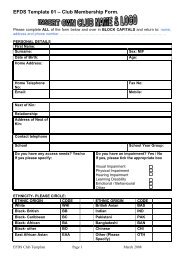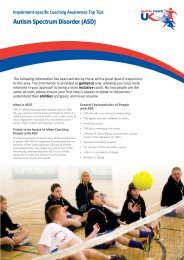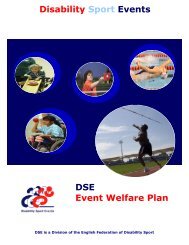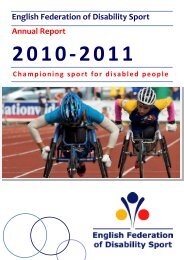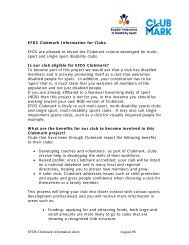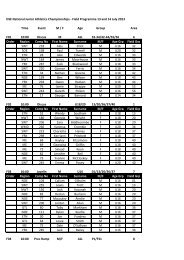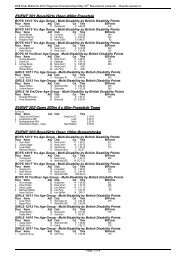OO213 - English Federation of Disability Sport
OO213 - English Federation of Disability Sport
OO213 - English Federation of Disability Sport
- No tags were found...
You also want an ePaper? Increase the reach of your titles
YUMPU automatically turns print PDFs into web optimized ePapers that Google loves.
to education and health-care services, and areworse <strong>of</strong>f on a host <strong>of</strong> measures including thelikelihood <strong>of</strong> family break-up and abuse.States can tackle the consequent, increased risk <strong>of</strong>child poverty with such social protection initiativesas cash transfer programmes. These programmesare relatively easy to administer and provide forflexibility in meeting the particular needs <strong>of</strong> parentsand children. They also respect the decisionmakingrights <strong>of</strong> parents and children.Cash transfer programmes have been shownto benefit children, 21 although it can be difficultto gauge the extent to which they are usedby and useful to children with disabilities andthose who care for them. 22 A growing number <strong>of</strong>low- and middle-income countries are buildingon promising results from these broader effortsand have launched targeted social protectioninitiatives that include cash transfers specificallyfor children with disabilities. These countriesinclude Bangladesh, Brazil, Chile, India, Lesotho,Mozambique, Namibia, Nepal, South Africa,Turkey and Viet Nam, among others. The type<strong>of</strong> allowances and criteria for receiving themvary greatly. Some are tied to the severity <strong>of</strong>the child’s impairment. Routine monitoring andevaluation <strong>of</strong> the transfers’ effects on the health,educational and recreational attainment <strong>of</strong> childrenwith disabilities will be essential to makesure these transfers achieve their objectives.Another tool governments can use is disabilityspecificbudgeting. For instance, a governmentthat has committed to ensuring that all childrenreceive free, high-quality education would includespecific goals regarding children with disabilitiesfrom the outset and take care to allocate a sufficientportion <strong>of</strong> the available resources to coveringsuch things as training teachers, making infrastructureand curricula accessible, and procuringand fitting assistive devices.Effective access to services including education,health care, habilitation (training and treatmentto carry out the activities <strong>of</strong> daily living), rehabilitation(products and services to help restoreA young boy with albinism reads Braille at school in the town <strong>of</strong> Moshi, United Republic <strong>of</strong> Tanzania.© UNICEF/HQ2008-1786/PirozziFUNDAMENTALS OF INCLUSION15



